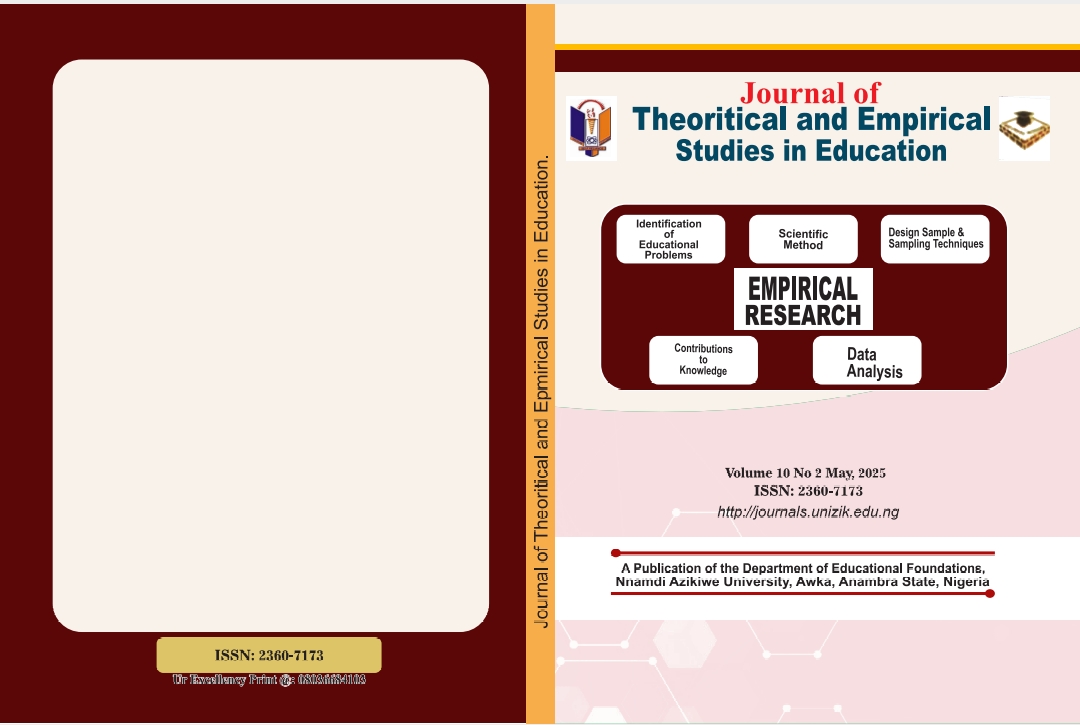Effects of Collaborative Learning Strategy on Teaching Practical Geography to Enhance Students' Learning Engagement and Motivation in Senior Secondary Schools Lere Metropolis
Keywords:
Collaborative Learning Strategy, Practical Geography, Student Engagement, Academic Performance, and Geographic Information Systems (GIS)Abstract
This study examined the effect of collaborative learning strategies on teaching
Practical Geography to enhance student engagement in map reading, motivation
in interpreting statistical data, and academic performance in learning Geographic
Information Systems (GIS) among Senior Secondary School II students. the study
adopted a quasi-experimental design. The population of the study made up of
9,010 Senior Secondary School II (SSII) students from 12 public secondary
schools in a systematic random sampling method was used to select two schools
where 64 SSII students were designated as the control group, while 68 SSII
students formed the experimental group. Rating scale was used as research
instrument through a pre-test and post-test to assess students' engagement,
motivation, and academic performance before and after implementing
collaborative learning strategies. After six weeks, post-tests were administered to
compare changes and assess the effects of collaborative learning strategies. Data
analysis involved using descriptive statistics (mean and standard deviation) to
answer the research questions and inferential statistics (t-test) to test hypotheses.
The findings indicate that collaborative learning significantly improves student
engagement in map reading and enhances intrinsic motivation in interpreting
statistical data through peer interaction and group-based tasks. Additionally,
collaborative learning positively affects academic performance in GIS by
fostering problem-solving skills. However, challenges such as group dynamics
and technological limitations were identified. The study recommends the
adoption of collaborative learning strategies, teacher training, curriculum
integration, and policy support to sustain improved learning outcomes.




